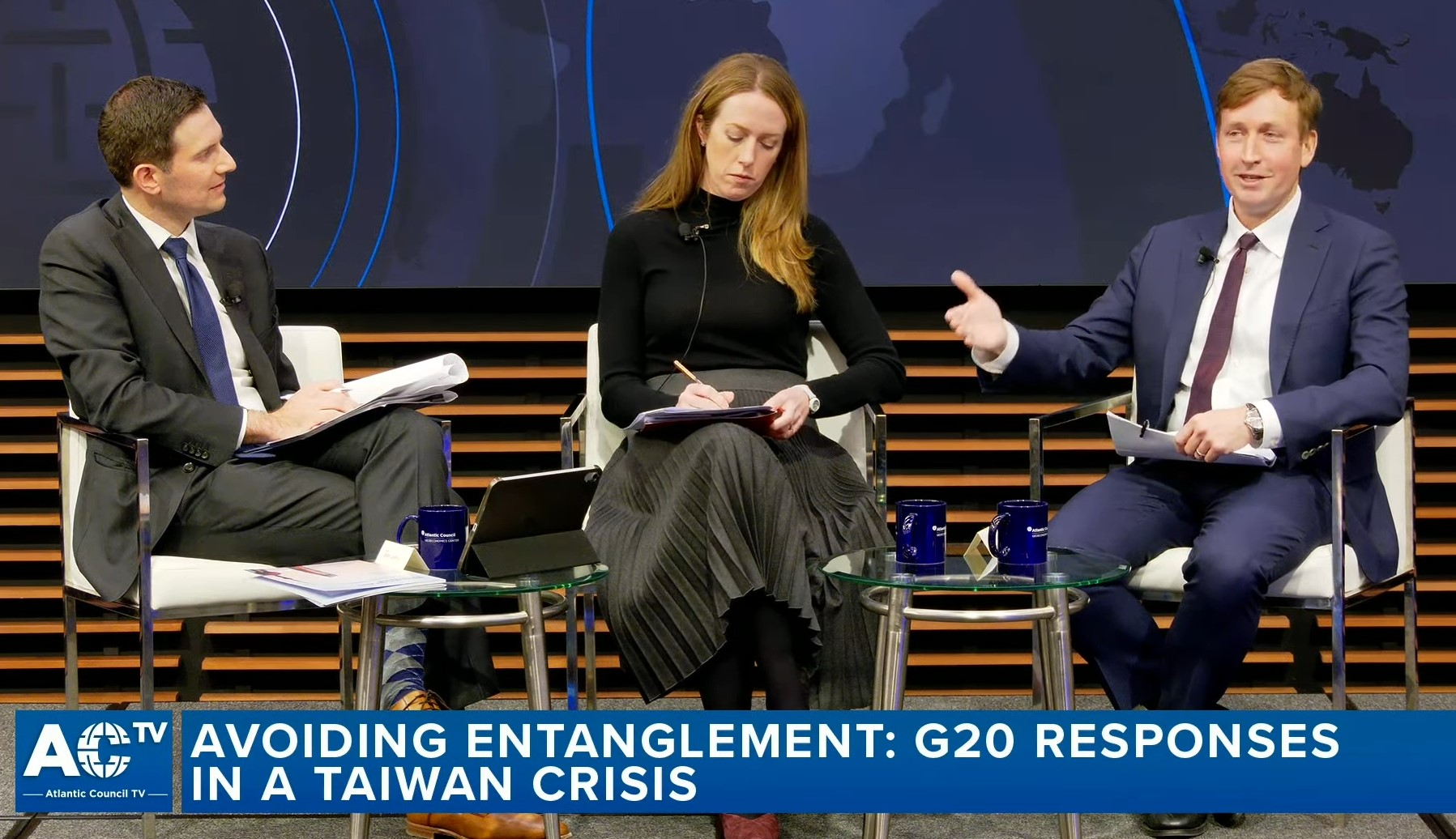This report examines three case countries from the Group of Twenty (G20)—Brazil, South Korea, and Indonesia—and their likely responses to both US and Chinese economic statecraft in several hypothetical scenarios related to the escalation of tensions and risks of conflict over Taiwan. This study is designed to assess the policy trade-offs that countries outside of the G7 and US alliance networks may face. The report assesses Brazil, South Korea, and Indonesia’s economic and financial linkages with China, alongside a review of historical sanctions policies, and insights from selected interviews with key stakeholders. The report then identifies China’s likely goals for interactions with G20 nations under a Taiwan contingency, as well as each case country’s respective economic and policy reactions.
US and G7 foreign policy goals and requests for these countries would likely be limited to the enforcement of economic and financial sanctions. They will likely include consensus building among G20 members to express political support for China to de-escalate. Beijing would have its own set of economic statecraft tools that could potentially be deployed, which are discussed in our previous report, Retaliation and Resilience: China’s Economic Statecraft in a Taiwan Crisis.
China is unlikely to deploy punitive or “negative” economic statecraft tools such as sanctions or export restrictions against non-G7 countries in a Taiwan crisis scenario. China’s past statecraft practice, its diplomatic strategy toward developing economies, and its existing economic influence over much of the G20 reduce the need for such punitive measures, as Beijing would have interests in portraying its economy as open for business as usual, even as political tensions increase. Obviously, these calculations may change for Beijing depending upon US or G7 outreach to any country with which Beijing had an extensive economic relationship, where China may see threats as a more useful tool.
For the purposes of this study, we used the same definitions of “moderate” and “high” escalation as defined in our previous report:
- In a “moderate” escalation scenario in which limited US or G7 economic sanctions are applied, China will primarily seek to preserve business as usual with G20 countries and focus on obtaining diplomatic support, or at the very least neutrality, from countries like Brazil. Compliance with China’s legal assertions of sovereignty over Taiwan—via possible customs requirements or navigation restrictions—could also prove important. China has little need to augment its existing economic influence over the countries in this study with punitive statecraft such as threatened sanctions or export controls.
- In a “high” escalation scenario of more widespread financial sanctions on China’s banks and the central bank, coercive economic statecraft against the three case countries is marginally more likely, but still a low probability. As G7 pressure on the rest of the G20 to enforce secondary sanctions increases, China may be willing to use more direct measures to forestall a wider, comprehensive response to changing conditions in Taiwan. Of the case countries, South Korea is most likely to be affected by any negative statecraft.
It is difficult to predict with certainty how G20 nations are likely to respond overall to both US and Chinese diplomacy during these scenarios, and this is true for Brazil, South Korea, and Indonesia specifically. As Taiwan is not a central diplomatic or political issue for any of the case countries, responses will likely be dictated by each nation’s own existing policies and declared self-interest, as well as their perceptions of the importance of preserving relations with either China or the United States.

